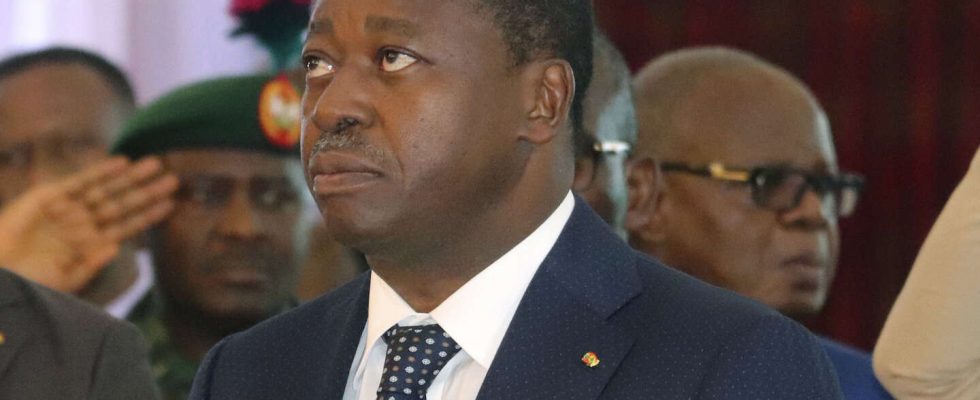President Faure Gnassingbé’s party largely won Monday’s legislative elections in Togo, the electoral commission announced on Saturday May 4, which will allow the head of state to remain in power under a new Constitution adopted in April .
The Union for the Republic (Unir), the presidential party, obtained 108 deputies out of 113, according to the provisional results announced in Lomé by the president of the Independent National Electoral Commission (Ceni), Dago Yabré, after a count broadcast live on the national television channel. The participation rate was 61%, according to the Ceni.
These results, which have yet to be confirmed by the Constitutional Court, constitute a triumph for the party of President Faure Gnassingbé, in power since 2005 following his father, who remained at the head of state for nearly thirty-eight years. This should ensure that he remains the master of Togo’s destiny for at least the next six years.
An “institutional coup d’état”
The new Constitution adopted on April 19 by the outgoing deputies shifted the country from a presidential system to a parliamentary system. Power now resides in the hands of a president of the council of ministers, who is automatically the leader of the majority party in the National Assembly. Which is the case for Faure Gnassingbé, president of Unir.
This constitutional reform has been strongly criticized by the Togolese opposition and civil society organizations, who denounce a “institutional coup” and see it as a way for Faure Gnassingbé to remain in power indefinitely. According to the previous Constitution, Mr. Gnassingbé could only have run for one last term in 2025. The opposition claims that the abolition of direct suffrage to elect the head of state will allow the latter to be reappointed without term limits as long as his party wins the legislative elections.
For the ruling party, on the contrary, the constitutional reform makes the authorities more representative. According to the new Constitution, the President of the Republic, appointed by the deputies for four years, becomes a simple honorary title.
“Less than 70 observers” throughout the country
The elections took place peacefully on Monday, despite a tense political climate. In the days that followed, several international organizations expressed satisfaction with the conduct of the vote.
The Economic Community of West African States (ECOWAS), the African Union (AU) and the International Organization of the Francophonie (OIF) said on Wednesday they welcomed “the establishment of a permanent consultation framework” as well as “good progress of the electoral campaign”and greeted “the holding of elections peacefully”. The day before, an electoral mission from the Community of Sahelo-Saharan States (CEN-SAD) judged that the vote had been “free, fair and transparent”.
Follow us on WhatsApp
Stay informed
Receive the essential African news on WhatsApp with the “Monde Afrique” channel
Join
For their part, some opposition voices began to criticize the conduct of the elections. Nathaniel Olympio, president of the Parti des Togolais (PT, opposition) regretted Wednesday on “international organizations [aient] validated the fraudulent elections » on Monday, deploring that they had deployed “less than 70 observers” in all the countries.
The Dynamics for the Majority of the People (DMP), a grouping of opposition political parties and civil society organizations, claimed to have observed throughout the electoral day “an excessive number of votes in several centers”of the “delays in starting voting” and electoral lists “not displayed”.
Thirteen political parties and civil society organizations in Togo filed an appeal before the ECOWAS Court of Justice in April to demand the withdrawal of the country’s new Constitution. Attempts by the opposition to demonstrate against the new Constitution fell on deaf ears, with authorities preventing opposition leaders from meeting. In Togo, demonstrations have been banned since 2022, after an attack on the large market in Lomé during which a gendarme was killed.

